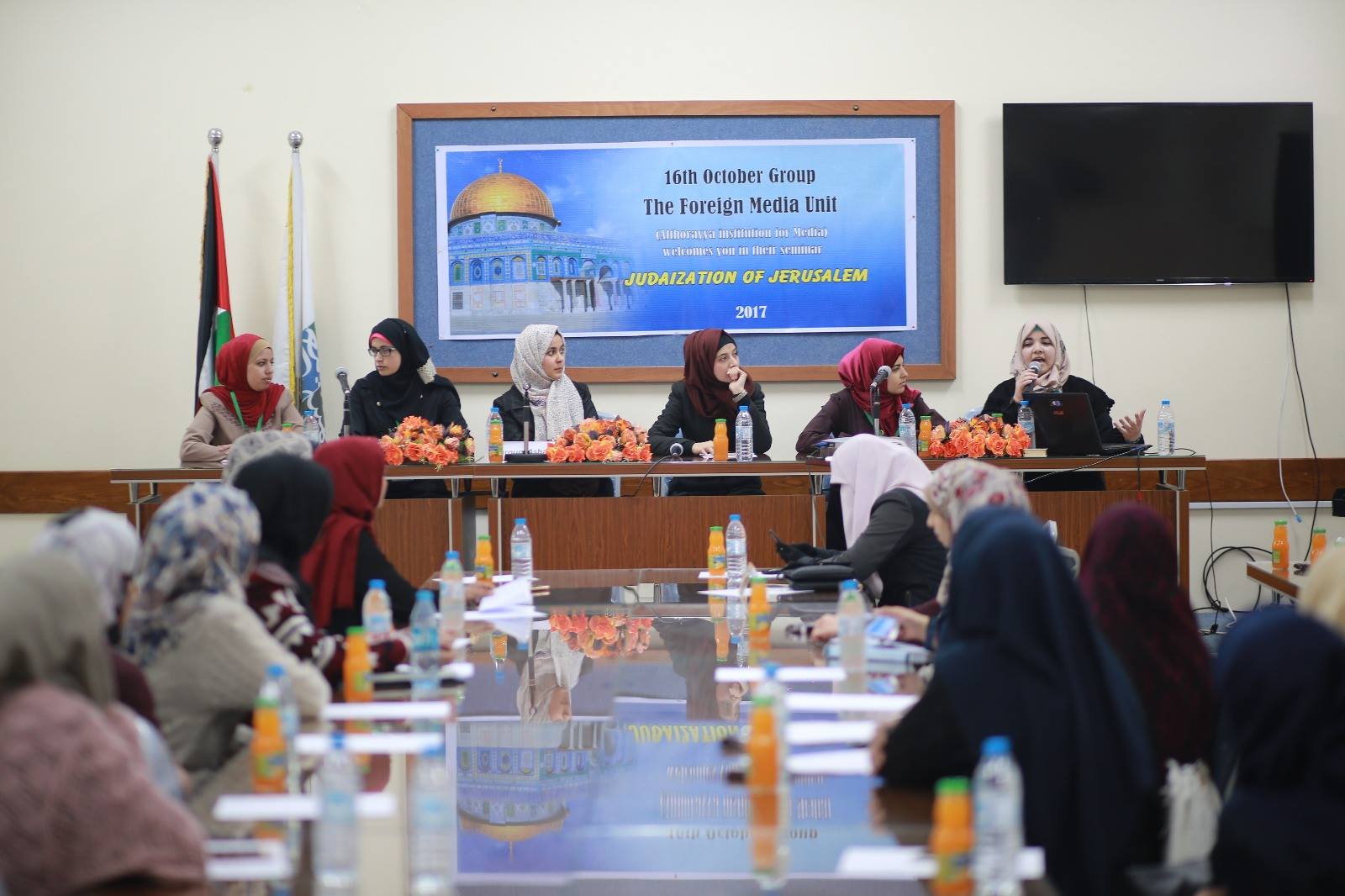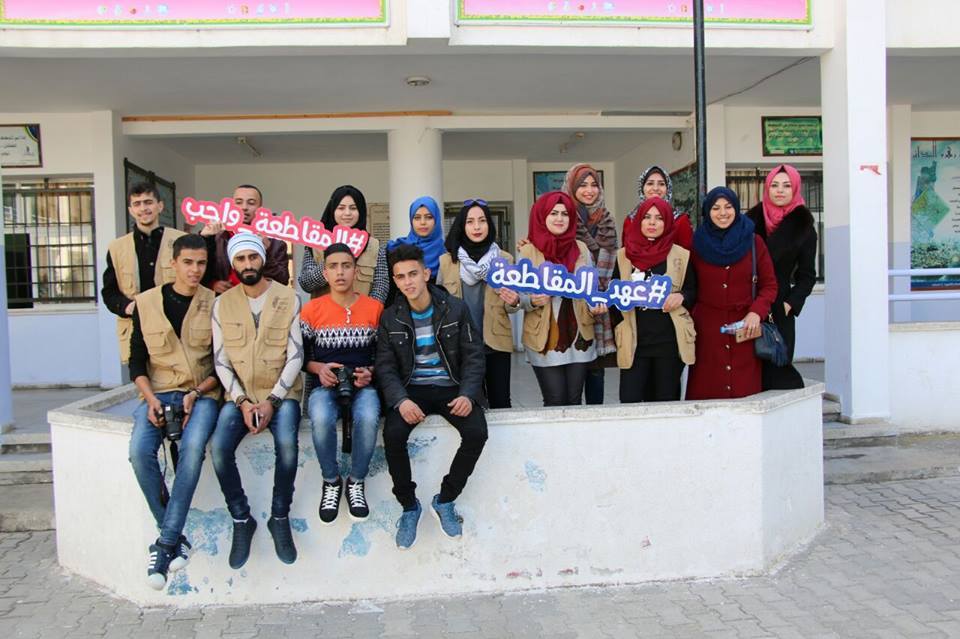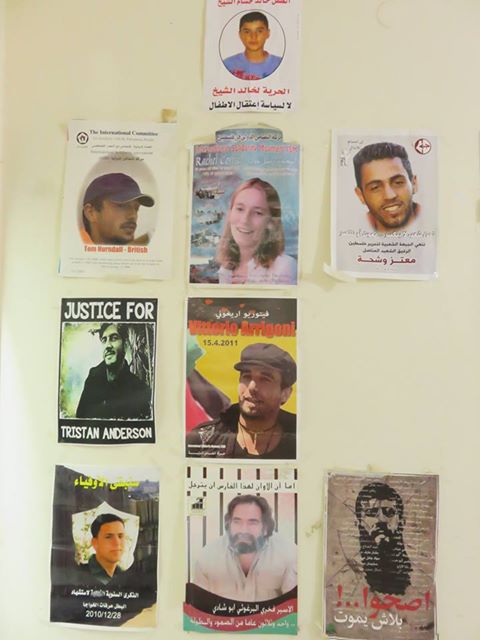Category: Gaza
-
16th October Group helds a seminar about the judaization of Jerusalem
3rd March 2017 | International Solidarity Movement, Gaza team | Gaza, occupied 16th October Group (the foreign Media Unit in Athorayya association for Media ) held a seminar about the judaization of Jerusalem, on Monday 27 of February in Gaza city. the seminar aims at shedding the light on the suffering of the Jerusalemites and…
-
Awareness campaign to boycotting the Israeli occupation
23rd February 2017 | International Solidarity Movement, Gaza team | Gaza, occupied Palestine The Boycott campaign-Palestine PCB organized an awareness campaign for some Schools in Gaza City in order to raise awareness of the importance of Boycotting the occupation and supporting local products. A number of the boycott-campaign-Palestine activists took part in the campaign by…
-
Remembering Tom Hurndall
16th January 2017 | International Solidarity Movement, ISM Australia | Gaza, occupied Palestine It’s 13 years since Tom Hurndall, a British activist with ISM, was shot in the head while trying to carry a small boy away from a conflict zone in Gaza. His face was among a wall of martyrs I saw on arrival…



